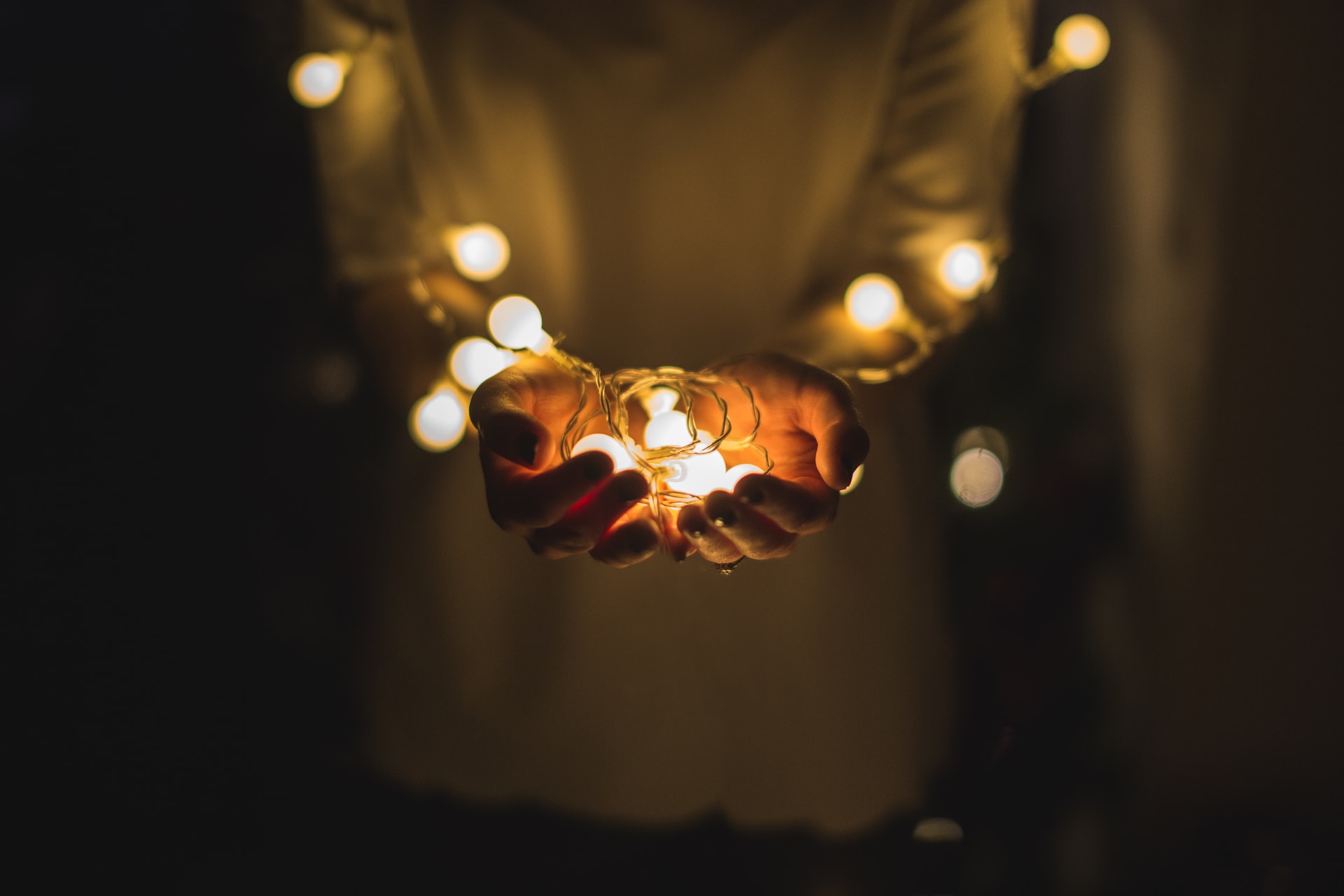
Today, 26 July 2021, the day on which I write these words, is Grandfather's Day. I didn't know there was such a thing as "Grandparents Day" - or as they say now to make something real, #GrandparentsDay. In all my years of life, I had never heard of it. I haven't seen a single sales campaign or activity focused on this celebration, although there are some. When I discovered it, I immediately thought it would be something new, the result of the efforts of so many to make visible everything that has to do with the elderly. Not at all. It turns out that this commemorative day was established more than forty years ago to compensate for Mother's Day and Father's Day. We all know about those, but I bet this Grandparents' Day has gone completely unnoticed by a good number of people of my generation and beyond. Is it yet another sign of our society's neglect of the elderly?
Watch out! We are talking about grandparents, who are sometimes elderly, but not always, just as the elderly in many cases are grandparents, but not as a matter of necessity. In fact, it is frowned upon to call the elderly "grandparents", because it seems to be offensive to assume that all the elderly have grandchildren. In our imagination it is completely associated, just as being older is loaded with negative connotations. Thus, it is easy to observe how a forty-five year old grandmother refuses to be called as such because it indicates that she is already old, and she does not like that, because it goes hand in hand with all the bad things that happen in this last period of life. This is a problem that is tending to disappear, fortunately for young grandparents, as it is less and less likely that our children, those of the millennials or Generation Y, will get to know their grandparents. The other problem, that of prejudice towards what it means to be an older adult, is more difficult to eradicate.
It is frowned upon to call an older person "grandfather" if the person doing so is not directly their grandson or granddaughter. I came across this on Grandparents` Day when I logged on to Twitter this morning. All the Spanish personalities in the world of geriatrics and gerontology, foundations, associations, consultancies, collectives and research centres, including this International Centre on Ageing, had dedicated their message to grandparents on this day. Among them, all quite similar, each taking the opportunity to claim their own struggle - some pointed to ageism, others to paternalism, many recalled the scourge of abuse, some mentioned unwanted loneliness -, I immediately came across one that showed an image that said: "My grandchildren call me grandfather, you call me an old person".
The truth is that I don't know who would call an old person "grandfather" who is not their grandfather just because of their appearance. In this, I, who am always complaining and questioning the intricacies of so-called ageist language, partly agree with those who criticise this particular way of referring to older adults. Just the thought of it strikes me as odd: who would call a woman in her thirties "mum" just because most of them have had children by that age, if they are not her children per se?
I don't know how often this happens in the real world, calling a woman "grandma" because she looks older than sixty-five, I mean. I can hardly imagine the situation; suddenly the greengrocer saying "how did the cherries come out, grandma?" or a young man giving up his seat to an old man in the doctor's waiting room: "sit down, grandpa". I think this was more typical of the small towns of a few decades ago where we grew up almost as a community, in the streets, generating a relationship of trust, care and respect between generations that allowed what today is a daring gesture then to be just a gesture of affection. I lived in a similar reality and, even so, I did not call grandfather or grandmother to those who were not my own. Yes, to bread, bread and wine, wine: grandparents are those who have grandchildren and only those who have a kinship relationship with them should call them grandparents.
Or not? Why should it be offensive to call someone who is not your grandfather "grandfather"? Is it because we remind that person that he has grandchildren who don't pay any attention to him? Is it because he already has enough grandchildren and doesn't want any more? Or because he doesn't have any and we are fuelling his grief? Or because he shows an excess of confidence that nobody has given us? Is it because, as I said at the beginning, grandfather is associated with "old person" and being old is not desirable? I am in favour of the latter. But, in reality, what is going to change the situation of being older, if in fact one is older, because one is called grandfather? One is not going to be younger, or have fewer aches and pains, or feel less lonely.
Many say that using the word "grandfather" to name someone who is not your grandfather is even a form of mistreatment because it limits elders to that one social role. This seems crazy to me, with all due respect. When the hypothetical greengrocer in my head is addressing the lady as "grandma", first of all, he is probably not doing so with the intention of hurting her. On the contrary, he is probably doing it to win her affection as a customer, her loyalty, and out of tenderness. Calling someone "grandpa" in a consciously offensive tone only comes to mind as a teenager from the suburbs in some American movie from the nineties: "Don't give us a hard time, grandpa!", while an older man scolds the kids for skateboarding in the middle of the street.
Mistreatment? I think it's too much. Abuse is a very serious thing and calling everything abuse ends up trivialising a very serious problem facing older people today. I am sure that whoever uses the expression "grandmother" to refer to an elderly woman does not even think for a moment about her family situation, about whether or not she has grandchildren, and much less does she intend to let her know that her only function in this life is to take care of her children's offspring, or that, in the worst case, if she has not had grandchildren, she is no longer good for anything.
Does an older person really feel this when they are called "grandfather" or "grandmother"? I think what bothers them, if anyone says it to them, and if it bothers them at all, is that it makes them feel old. The key, once again, lies in the idea we have of old age and all the negative things we associate with this phase of life. Because, let's not fool ourselves, there is a lot wrong with being old; there is also a lot right with it, but the bad is made very clear through physical and cognitive deterioration, dependency, life changes and the threat of the end. All eyes are on the positive over the negative, the good over the bad, but the latter is not going to disappear because of that, and even less so because we censor certain language.
A personal example: for a year now, it has been happening to me that the people I interact with call me "ma'am", and it offends me a little because it makes me feel older, older than I would like, further away from what is considered "youth". This makes me wonder what image others have of me. I don't yet see myself as being referred to as "madam", but what I consider myself to be doesn't really matter. I am sending a message to the world that I am no longer a young girl, with my looks, my attitudes, my habits, and others get the message, one that I don't want to send, and they act accordingly. I get angry, and the reason is that I don't want time to pass, I don't want the end of everything to come quickly. But it never occurs to me that whoever calls me "madam" is limiting me to being someone's wife, or is doing it to make me aware of their contempt for my natural ageing. That this makes me feel weird is definitely my problem.
Deep down, what will happen if I go out in the street right now and say "good afternoon grandpa/grandma" to the first older person I meet? Probably nothing. What's more, if that person is offended, it's as easy as saying "I'm not your grandfather", and unless the person who said the greeting, in this case me, is an idiot, and I don't think I am, it wouldn't occur to them to call this or any other elderly person that way again. Let's also leave it to the people concerned to set their limits where they see fit! They are not small children to be protected! I'm sure some of them are even happy about it! I say this because I do not like these lists of banned terms with which we are trying to change things at the root. I am not convinced by them. I am not attracted by impositions; I prefer a more organic method, based on learning and evolution from the combination of hit and miss in the development of worldly life.
All this is just a few conversations with myself that have occurred in my mind about this day, just thoughts that I have let flow and decided to put down on paper. They are by no means thoughtful ideas. They don't always have to be. These exercises in digression are not meant to be a lecture, but to encourage dissenting voices to make themselves heard, to open up debate about those consecrations that, it seems, should no longer be altered under any circumstances. I like to rethink everything a thousand times, even what seems unquestionable. I hope I am not considered to be an advocate of mistreatment in old age.
By the way, I didn't want to be lesser on this day and I have joined, without really knowing why -I'll think about it too-, the twitter train with my own Tweet:
I wasn't the most original person in the world either. Most of the congratulations to whom this day is dedicated were accompanied by a warning not to overload grandparents' schedules with caring for grandchildren and to respect their free time. I did like that approach. My nod to boredom comes precisely from the fact that some researchers have argued in the past that older people, especially women, become bored when they are deprived of the caregiving tasks to which they have been accustomed for much of their lives. I'm sure they do, I don't doubt that. But overload is not preferable to boredom. It should not be forgotten that it must always be the grandparents, and I am referring to older or younger people with grandchildren, who set the pace and impose their will.
In this sense, there are parents with a lot of nerve, but also grandparents who have to learn to say no without feeling bad. I will talk about this in another post in which I will summarise the keys to Acceptance and Commitment Therapy (ACT) in older people in a systematic way (today it was the day of my anarchic part) and how it can help grandparents to set limits for children who overdo it. Happy Grandparents' Day (and Grandma's, which many are complaining about) to those who have grandchildren and to those who had them, to those who never had them and never will.


